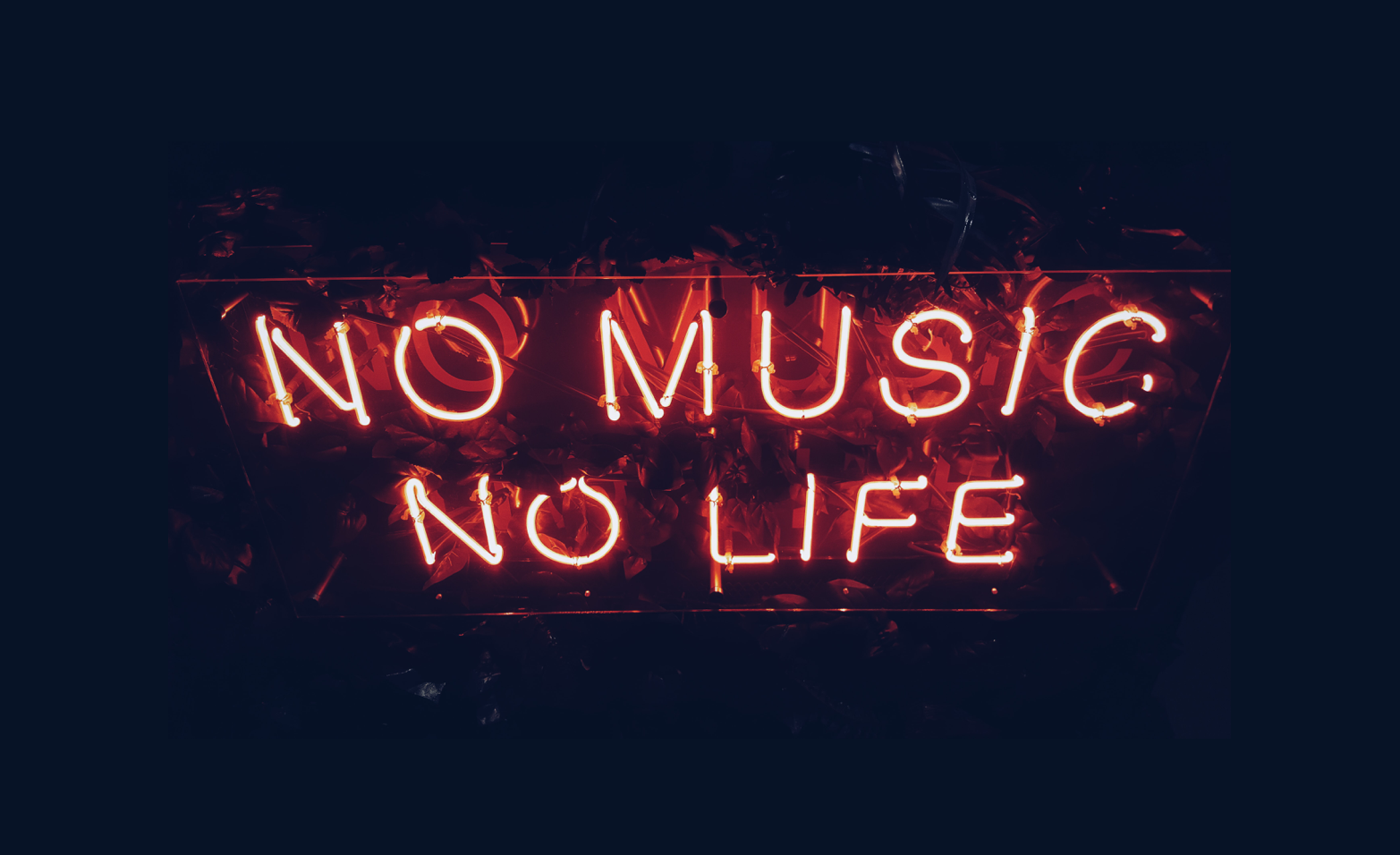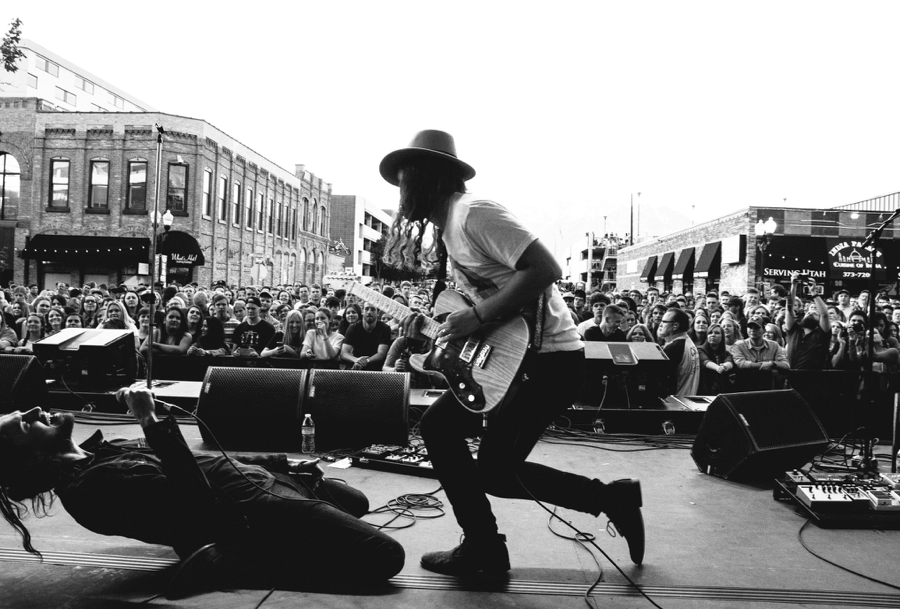
Rockin’ in the free (again) world
What does the future hold for live music?
Live music has been big business in recent years. Just think about Glastonbury – now one of the world’s biggest arts festivals – which had to cancel its 50th birthday celebrations, this month.
How has live music survived the coronavirus lockdown? As shops and hairdressers begin to re-open, when can we expect to see our next live gig?
At Centtrip, we don't run music tours, but we work with lots of people who do – artists, tour managers, artist managers, record labels and production companies.
We asked some industry experts to share their views.

What’s the current situation?
Following an initial crisis of cancellations and repatriations, the sector is waiting to see how the world unlocks.
The immediate task for artists and their management has been to look after their fans, as Annabella Coldrick, Chief Executive of the Music Managers Forum (MMF), told us:
“The main thing is maintaining your fan-base. If you don't look after your fans, and other artists do, you potentially put yourself at a disadvantage when things return to normal. Some artists have been incredibly creative with video content and in the collaborations they've been doing.”
Artists have also used the time to write and record. Some have released new material into a subdued market and received unexpectedly high-profile attention as a result.
“Some have been receiving four and five star reviews in music and mainstream media where, in busier times, they just wouldn't have got the exposure,” Coldrick says. “But, of course, they haven't been able to capitalise on that by touring.”
In place of getting on the road, artists are finding new ways to deliver their art. Examples include drive-in concerts and high-quality video events like Laura Marling’s recent, pay-per-view, video concert, broadcast live from London’s Union Chapel.
“Quite quickly, there was a realisation that low-quality, from home, live streams were not going to be sustainable,” Coldrick says.
There is also concern among music managers and artists not to devalue live music by giving it away free.
Marling performed two shows on the night before an in-venue audience of only film crew. The concerts were geo-locked – one for North American fans, the other for UK fans – and livestreamed, from the 900-seat venue, to an online audience of 6,000, paying £12 or $12 per ticket.
Artists and their managers are busy – even if they’re not earning – but what about road crew and touring professionals?
Veteran tour manager Steve Chapman began his career in the 1980s and has recently managed tours for Royal Blood, the Arctic Monkeys and the Stone Roses.
“Everyone in this business is likeminded, self-motivated and knows the ultimate aim is to make a show happen. It’s all about dealing with often incredible circumstances, to make things happen,” he says.
Tour professionals are resilient problem solvers by nature. They are also used to quiet periods between tours.
“Everyone knows that live music will be back, so they’re just getting on with their lives,” Chapman says. “Touring is a tough job at the best of times. This [prolonged lay-off] is just another part of the job.”
Paul Pacifico, CEO of the Association of Independent Music (AIM), represents the “community of entrepreneurs in the British music industry”. He worries about the impact of the pandemic on independent, grass-roots venues and other businesses.
“Many smaller companies have used all of their reserves to survive the crisis and I'm very concerned about a swathe of acquisitions that might follow the crisis where bigger companies can pick up weaker, smaller ones at a deep discount.”
The result could be fewer of the “niche, innovative, creative businesses who take big risks and who discover the next cultural wave.”
There is a potential solution, he thinks.
“Businesses have been significantly weakened in terms of capital reserves and ability to invest,” he says. “We would very much like to see a creative industries tax credit for investments in new music. There's precedent in existing credits for film, computer games, kids' TV and all sorts of areas, but there isn't one for music. It would act as a very powerful catalyst for getting artists back in the studio, getting albums back on the shelves and generating demand in the public to buy tickets and start going to shows again.”

What’s the mood in the rest of the industry?
The mood across the industry is varied. At heart, all our experts agree, music people are resilient and optimistic. However, three months into the lockdown, even the more established or successful are seeing their financial reserves being drained.
“It depends very much on your business,” Pacifico says. “If you have a substantial recorded music catalogue – whilst you may have seen a substantial fall in revenue – you would still be benefitting from digital income, which has remained resilient throughout the crisis. The market for physical music goods in the UK has also remained pretty strong. It had dropped to about 50% initially but has grown back to 75% of pre-covid levels. That’s a sign of the strength of feeling and support for music from the public.”
However, “The more reliant you are on live, the more problematic it is. Live music was the first area of the music business to shut down and it will be the last to re-open.”
Coldrick agrees. Artists who rely on live performance earnings – DJs, of course, but also many older artists with a strong fan-base but little streaming – are feeling the pinch, she says.
At the outset of the crisis, organisations like AIM and MMF lobbied hard to support a sector which, as Pacifico notes, is 72% self-employed. Both organisations have launched crisis funds to support members, artists and their organisations.
You can find details of the AIM crisis fund, here.
You can find details of the MMF ReBuild fund, here.

What will live music look like in the future?
There are different views on when touring might take off again. Some managers are still planning for autumn 2020 while others are saying nothing will happen until 2022. A lot depends on the next few months, the success in lifting lockdown and the emergence of any possible second spike.
“All being well, people are looking at spring of next year to start booking shows for,” Pacifico says.
The outlook also depends in part on genre and fan-base. Coldrick mentions an artist in her late seventies. “Some older artists may just not tour again.”
“Every band and business is looking at how to make touring happen again,” Chapman says. Industry organisations are moving from providing initial, emergency FAQs to forward-looking guidance.
“We’re currently finalising back to work guidance in partnership with government, Public Health England and the Health and Safety Executive,” AIM’s Pacifico confirms.
When nearly three quarters of workers are self-employed, Pacifico says, “We are not an industry of employers that can require people to return to work. We have to create an environment that feels safe and is safe. We need to encourage people to come back to work. It's important that we grow confidence internally within the industry and we have to express and encourage that confidence externally with the public.”
Covid-19 is a greater risk for certain demographics and Pacifico emphasises how important it will be to recognise that and “to make sure that we act in considerate and supportive ways to maximise the equality of opportunity for the industry as it regrows.”
When touring begins again, life on the road may look quite different. Clearly, hygiene will be a major concern, as will back-stage security.
“Contact with local staff will be kept to a minimum and the back-stage area will be much more secure,” Chapman says. “Bands may choose to be on-site at the venue for a shorter time – maybe just half-an-hour before the show, going straight on and not hanging around.”
The touring party as a unit may become more of a caravan or traveling circus, isolated from the outside world – for the safety of the touring party and locals. Meet-and-greets, for example, may become a thing of the past.
The rock touring business will develop its own protocols, Chapman says, working with local regulations in each country.
Coldrick agrees. Mosh pits may be consigned to rock history. Audiences may be socially distanced.
“There could be more hybrid tours,” Coldrick thinks, following, perhaps, the model used in recent years by the likes of the Royal Shakespeare company and Royal Ballet who regularly streamed live performances to cinema audiences.
Public confidence will be critical. “It will be a bit like Jaws,” says Chapman. “It will take people a little while to get back in the water.”
A recent survey by Statista backs this up. 58% of UK respondents said they were likely to avoid concerts “for a while” even after covid-19 restrictions are lifted.
Can music lovers be persuaded back to live gigs?
One consequence of a prolonged lay-off may actually be bigger shows. Time will have passed since major artists were last on tour and, Chapman feels, there may be a desire to expand production and create an even greater sense of event, one not to be missed.
And, as Pacifico says, “The excitement of a new album is the biggest driver for getting the public to think about buying tickets and going to shows, again.”
Artists are keen to get back on the road and, despite public concern over health risks, there’s an appetite to experience the thrill of live music, again.
The industry has taken a knock. Promoters and venues are looking to recover losses. As a consequence, Coldrick says, there is some concern about the terms being offered to artists by promoters for future live events. There appears to be a shift of cost and risk towards the artist. “In which case,” says Coldrick, “why do you need a promoter?”
“I think promoter deals will be awful for a while,” she continues,” but then we’ll see new models emerging. Independent promoters may step in to compete using more artist-friendly deals.”
While Centtrip’s role typically begins further along the planning process, we’re already seeing some increased demand for the Centtrip pre-paid, multi-currency card.
Once dates are in the diary, foreign currency strategy will be important again and we’ll be working with our live music customers to support them.
We’re proud to support nearly 500 of the world’s biggest touring artists. If you’d like to discuss how Centtrip can support your post-covid tour plans, please get in touch.

